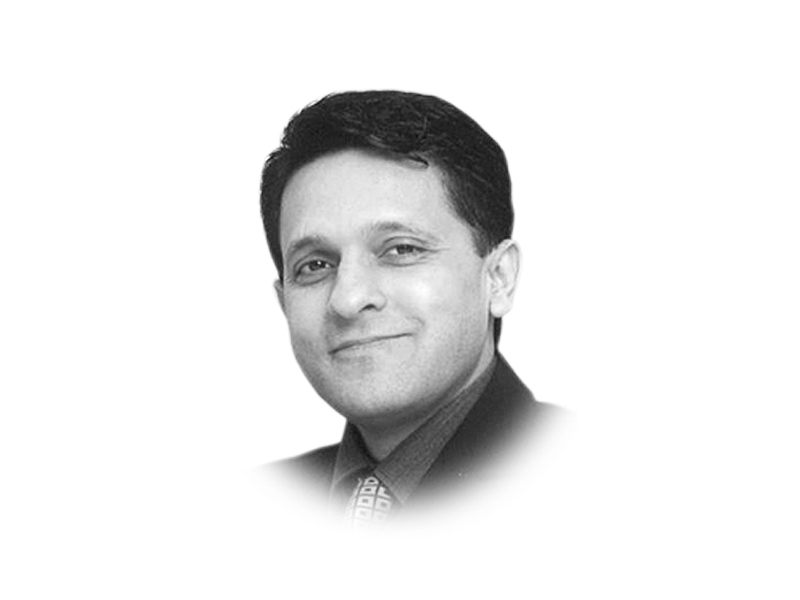
To begin with, political leaders in most developed nations have taken on the responsibility of promoting a culture of democracy within their political parties. Fundamentally, political party leaders are elected officials; their position in the party is a reflection of the rank and files’ trust in them. Contenders for party leadership go through a gruelling process where their academic and professional track records are minutely scrutinised; their policies enthusiastically debated and their ideas and opinions publicly critiqued. So no leader in the West attains the grand title of ‘Our Beloved Leader’ — they serve as an integral part of the system, kept grounded in the knowledge that change is a constant; that they serve at the will of the people; and that if they are disappointed, those very people will happily boot them out at the next election.
Tony Blair’s departure as Labour party leader in the UK is an excellent example of how democracy within parties operates. Can Pakistanis imagine Nawaz Sharif of the PML-N, Asif Ali Zardari of the PPP or Asfandyar Wali Khan of the ANP being shown the door; being replaced by someone from outside ‘the family’ no matter how credible and meritorious that person is? Of course not. These parties are family fiefdoms, not true democratic political parties.
Strong democratic systems are characterised by the devolution of power to the lowest administrative levels. This is important because no one person (not even Shahbaz Sharif) or even a small group of people can respond to, plan for, or deliver to local needs in a timely manner. In Western democracies, the local government mechanism serves the people as the ground troops execute and deliver upon government policies and enable the citizenry to experience the outcome of their votes at their doorsteps.
Our politicians seem to be working overtime to destroy the culture of democracy in Pakistan. They seem to be waging revenge on democracy rather than promoting it. Their deep-seated desire is to rule the country as emperors rather than as democrats. The PML-N and PPP governments have seriously damaged the cause of democracy by not holding local bodies elections. Pakistanis are now asking — and Chaudhry Sarwar asked as much in his resignation speech — why can’t our governments organise local bodies elections? The answer is simple: Shahbaz and Qaim Ali Shah want complete control. They want to consolidate power and budgets in their hands to use as tools of political bribery. As Alan Corenk once said, “Democracy consists of choosing your dictators, after they've told you what you think it is you want to hear.”
It took a few years for Sarwar to understand how politicians in Pakistan operate. Naturally, he would have compared his experience of being a politician in Pakistan with that of being a politician in the UK — a system based on local governance. He took the honourable step of resigning as governor of Punjab and by so doing he has strengthened the cause of establishing democratic values in Pakistan. It is important to highlight that democracy is part of a wider system. As such it requires certain parameters for it to operate optimally. No real democracy can work if the country’s judiciary is not delivering justice, if there is absence of an accountability apparatus for its bureaucracy, and where the law exists only to punish the poor and pardon the rich.
If we want to save Pakistan from disintegration, a system to audit the democracy practiced within Pakistan’s political parties must be put in place. The key findings of the audit should be published as a rating based on a democratic score. The score, and therefore the ratings, should be based on a few crucial questions to determine if basic democracy prevails within our parties: 1) how many genuinely registered members do these parties have; 2) what is their source of funding; 3) do they conduct free and fair elections for all their party positions; 4) do they allow policies to be debated freely; 5) are these genuine political parties or family-run enterprises?
This democratic audit should be undertaken periodically by a non-government body answerable to an independent election commission. The body should consist of judges, civil rights activists, lawyers, accountants, journalists, technocrats and other qualified representatives of civil society. Democratic parties must meet a minimum rating requirement to be permitted to contest elections. Media outlets should use these democracy scores to help voters decide which of the parties are truly democratic and worthy of their votes. Parties that do not practice democratic principles within their own establishment cannot be trusted to run a country on democratic principles — they will be an obstacle to democratic culture in Pakistan and so will continue to wage revenge on democracy.
Published in The Express Tribune, March 16th, 2015.
Like Opinion & Editorial on Facebook, follow @ETOpEd on Twitter to receive all updates on all our daily pieces.












COMMENTS (10)
Comments are moderated and generally will be posted if they are on-topic and not abusive.
For more information, please see our Comments FAQ